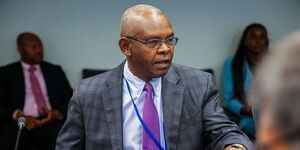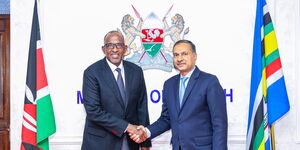To reduce energy prices in the country, the National Assembly’s Departmental Committee on Energy has proposed an amendment to the Energy Act, 2019.
The Energy and Petroleum Regulatory Authority (EPRA) is established under the Energy Act, 2019, with the responsibility for the technical and economic regulation of electric power, renewable energy, coal, and petroleum subsectors in Kenya.
Following a motion tabled by Laikipia Woman Representative Jane Kagiri, the committee recommended allowing consumers, labour unions, sector experts, industry players, and other energy stakeholders to nominate representatives to the board of the energy regulator.
In the proposals, the EPRA leadership board may change as the amendment to the Act suggests giving private energy stakeholders seats on the top decision-making organ of the energy authority.
The idea for including these stakeholder groups in EPRA's board is to ensure that their voices are heard in the decision-making process at the energy regulator including the decision of electricity prices.
The EPRA board consists of a chairperson appointed by the President, the principal secretaries for Energy, Petroleum, and National Treasury and a member of the county executive committee in charge of energy and petroleum or a representative nominated by the Council of Governors.
If the amendment proposed by the committee chaired by Mwala MP Vincent Musyoka is passed, board leadership in EPRA will mirror that of Ghana’s Public Utilities Regulatory Commission (PURC).
In Ghana, the PURC board has nine members, including a chairman and an executive secretary.
It also consists of one institutional representative each for labor, industry, and domestic consumers, as well as four experts in the various sectors regulated by the commission.
“That EPRA provides for inclusivity of the industry players within its board in order, to borrow practices from Ghana’s PURC board,” Musyoka said.
The main aim of the recommendation is to decentralize the monopoly in the sector which is consequently contributing to the high cost of electricity for consumers.
If the amendment passes, it would also mirror the World Bank-backed changes to the Kenya Power board that were made last year to give private shareholders a say in the decision-making at the utility.
When the motion was tabled, Members of Parliament backed it saying that the high cost of electricity has in the past seen investors relocate to other countries, including in the East Africa region and also denied the country new investments by foreigners.












